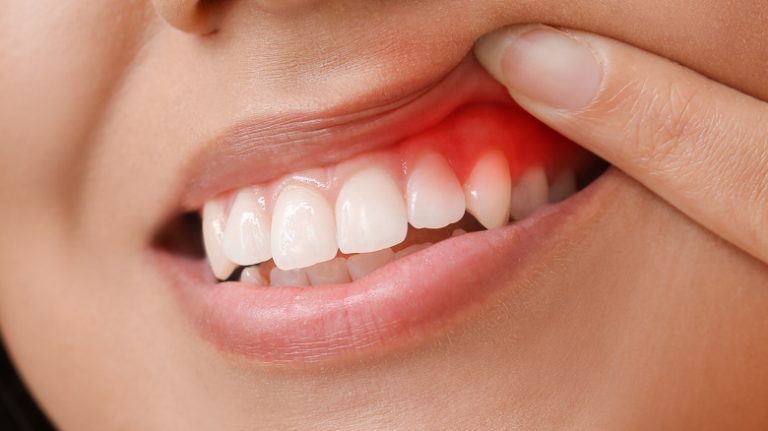When the pain of a toothache strikes, it’s nearly impossible to focus on anything else. “The main cause of toothache is untreated tooth decay, caused by a combination of high sugar diet, and an ineffective cleaning regime,” Dr. Jarri Amini, general dentist and founder of myprivatedentist.com, tells Health Digest in an exclusive interview.
“If you’re not brushing and flossing regularly, you will have a buildup of plaque on your teeth,” Dr. Amini states. “Bacteria in plaque thrives on sugar in food and drink, and over time starts to break down the hard outer layer of your teeth, or enamel, and cause a cavity.” When this occurs, Dr. Amini explains that the result is tooth pain. “Once the enamel layer has broken down, the sensitive underlying layers of dentine and pulp become exposed, and this causes toothache.” Alternatively, Dr. Amini states that a toothache can also be the result of injury, teeth grinding, gum disease, or wisdom tooth eruption.
Patients should be on the lookout for early warning signs of toothache related to dental decay, such as sensitivity to cold or sweet food items, Dr. Amini states. “If a hole in a tooth decay is left untreated, it can progress and cause infection of the pulp,” he says. “If this happens, [the] toothache is usually more intense, with a lingering throbbing pain. It may be sensitive to hot things, and disturb sleep.”
At-home relief methods

“[Toothache caused by tooth decay] can be easily fixed by a dentist, who will remove the decay and place a filling to protect it from further damage,” Dr. Amini goes on to tell Health Digest. He explains that this usually involves a root canal procedure or extraction.
While practicing prevention is the best way to safeguard our oral health, if you do find yourself faced with a toothache, Dr. Amini explains there are steps one can take at home to help relieve the discomfort. “Make sure to keep the tooth really clean by brushing twice daily with an electric toothbrush and a fluoridated toothpaste,” he advises, along with flossing daily. “Salt water rinsing can help to keep the area clean, and reduce inflammation,” he adds.
“Over-the-counter painkillers, such as paracetamol and ibuprofen (if suitable for you) can help to relieve toothache,” Dr. Amini offers alternatively. “A cold compress can help to reduce any associated swelling.” Additionally, being mindful of the foods you eat can also help keep toothache pain at a minimum. This includes sticking with a soft diet and steering clear of particularly hot or cold beverages or food items.
“If your pain has lasted longer than 48 hours, is keeping you awake at night, or you have swelling, don’t delay in contacting your dentist,” Dr. Amini states, concluding the interview. “It’s unlikely to get better on its own, and if treated quickly is often a simple fix.”



